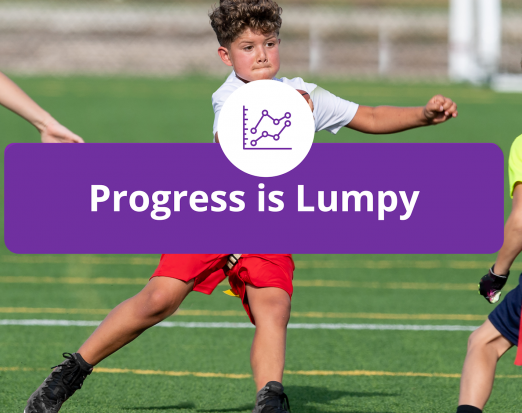Are we sacrificing long term athletic development for short term wins?

The concept of winning vs development is a topic which is frequently debated among coaches, players and the parents involved in youth sport teams. While both are essential components of playing sport, there are disagreements about which should be given more focus. In this article, we are going to explore the argument that development should be prioritised over winning in youth football coaching.
The argument for development
Every successful footballer is comfortable with the ball and isn’t afraid of trying new things, as being creative and confident in the game are also key ingredients in constant development. However, the only way that players get comfortable with the ball and lose the fear of trying new things is by making mistakes. We need to give children the tools they will require when they are older, where the winning result is much more important, so they are not scared to make mistakes.
Mistakes are a crucial part of the learning process and the way that players learn to respond to these errors will underpin their ability to play. Coaches and parents should be patient, supportive and encouraging when players make mistakes to allow them to learn. If players are receptive to the coach’s direction from their own mistakes this will result in an improvement in performance and ultimately the good result will follow.
Components of technical development
Football is a game that requires excellent technique, fitness and quick-decision making skills. Although every player needs to learn the same set of skills, we know that individuals will master these at different rates. Therefore, football training should always be relative to the player’s individual requirements.
Younger players should be focusing on technical and tactical skills to get a solid foundation of football under their belts before they can concentrate on winning. Only then, will they have the skills and confidence to make the optimal decisions which will help them win a game. When focusing on the win, coaches generally focus more of their sessions on tactics, long balls and clearing the back line to ensure safety instead of encouraging control, passing, dribbling and problem solving with correct decision making.
Football development is like building a house
Arsenal FC coach Arsene Wenger said football player development was like building a house, in the way that player development is a step-by-step process and that you can’t build the room before building the foundation. He believes for our youth players to have any chance of reaching the highest level of football, technique is a vital component up to the age of 14 and without this, a higher standard of play will be hard to reach. He refers to technique as the base of the house that should be a large component and focus for players up to the age of 14. His representation of the first floor of a house is the developing player from 14-17 years of age where physical components are introduced. The second floor, he said is a representation of the tactical awareness of players; where, when & how to move and understand why you are moving there. The last stage of the developing player represents the roof is; what level of success does the player want to achieve?
Development and performance
Some coaches and parents believe that environments that focus their training on player development have no desire to win games and players will never learn to strive for a win. They often believe that players should be taught to win and that coaches should provide an environment where performance is the goal. While everyone loves to win, it’s crucial for youth coaches and their environment to steer clear of pushing a ‘win at all costs’ mentality which puts pressure on young players. In some cases, too much pressure can lead players to suffer sport performance related anxiety and some may even quit playing football altogether if this pressure gets too much.
Following in our neighbour’s footsteps
The French Football system focuses on technique in early ages and develops players who are excellent with the ball. According to INF Academy Director Andre Merelle, a ‘winning at all costs’ mentality is not good for player’s football development’ (A.M, INF Football Academy). Another great example is the Spanish Youth System which has a large focus on technique, short passing and quick decision-making. We need to learn more from these countries as there is obviously a reason why they do things this way.
Sign up to our mailing list and never miss an article again.





